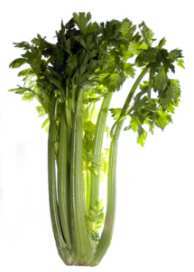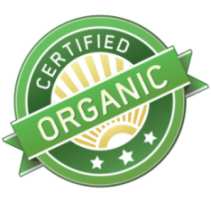Raw Pet Diet
A raw pet diet has been shown to provide a healthier and happier lifestyle for your pet.

A raw pet food diet is designed to mimic a dog’s natural diet. The whole concept of feeding this way is based upon a dog being a carnivore.
As icky as it is, it is completely natural for a wolf to consume the entire animal that it finds or captures. Meat, bones, organs and all. As direct descendants of wolves, dogs are naturally the similar. They do not effectively consume the 50% carbohydrate content of commercial kibble.
Processed dog foods consist mostly of filler foods which are indigestible to dogs or are not part of their natural diet. Cheap dog food fillers such as soy, rice, corn, and other grains are not good for them. Their only purpose is to add volume to dog food. They also contain a host of chemicals and stool-hardeners (to cover up that it is hard for dogs to digest these unhealthy ingredients). These foods can cause health problems.
After putting your dog on the raw pet diet, you will notice that he is healthier and happier. Chewing bones will clean his teeth and the fresh live food will make him feel great.
There are many commercial raw food products for your dog at specialty doggie food stores or on-line.
Or, you can make your own! And best of all, you can feed your dog at much less than store-bought food. At such a low price, your doggie deserves the best!
There are two kinds of raw dog food:
BARF (Biologically Appropriate Raw Food) - A raw diet for dogs consists of only uncooked fruits, vegetables, legumes, and meat, and sometimes dairy products and eggs, to raw meat. Dogs on a raw diet are not fed any type of marketed dog food, especially canned food.
Prey model - is when you try to recreate what a dog would eat in the wild. There are no dairy products, no veggies, no fruit, no grains, no supplements (other than fish oil, which is used by some raw feeders) and no ground meat. Foods are fed as whole as possible.
Benefits of Raw Meat Pet Food
- Firmer stools
- Improved digestion
- Healthier skin and coat
- Reduced allergy symptoms
- Better weight management
- There have been many reports of health improvement when chronically ill pets were switched from a commercial products to a raw dog food.
Downsides of a Raw Pet Diet
Ease - Dry commercial kibble is easy. Just open the bag and scoop out into the doggie bowl. Making a raw food diet takes a little extra time. There is no question though, dry kibble will not have the nutrients that raw meat pet food has. Consider the time you spend in preparation a healthy gift to give to your dog.
Bacterial contamination - Salmonella and E. Coli can potentially be a problem with raw meats. That is, low risk for dogs. Why? A dog’s digestive system is shorter and more acidic which makes this risk less than in humans. It is more important for humans, working with raw meat to take the standard precautions to avoid contamination.
Raw Meat Pet Food Diet Recipe

Here are the steps to creating a better raw pet diet for your dog:
- Weigh your dog to learn how much raw food to feed each day. I have done research and most raw food enthisiasts suggest feeding an amount equal to 2 to 3 percent of a dog's weight, or about 1/2 lb. of food per 25 lbs of body weight. Puppies should be fed no more than 10 percent of their body weight.
- A base for proportions:
Approx. 80% muscle meat with fat.
Approx. 10% Organs.
Approx. 10% Raw meaty bones. - Eggs – Once a week, preferably raw, the white and the yolk.
- Obtain the freshest, organic raw meats (bone-in and no bone) and organs available. You can use bison, beef, pork, fish, deer, and chicken. Organ meats such as spleen, brain, kidney, liver (especially liver), and heart. Green tripe (NOT bleached tripe found in the supermarket) is easily the most nutritious part of a raw diet and VERY important to include, up to 15%.
1. Reserve enough meats and bones for up to 3 days. Wrap the remainder and freeze for later use.
2. Steam, grind or finely chop 1 to 3 lbs of fresh, low-glycemic vegetables such as spinach and carrots. Some fruit is also acceptable. This step is optional. (Vegetables should be pulverised and lightly steamed for smaller dogs whose intestines may have a difficult time processing large pieces of vegetables).
3. Mix the meat and organs (tripe included) with any supplements. Mix all other ingredients together. Combine the meat mixture with the other ingredients. Form into patties and put into refigerator. IF you are making more than 3 days of patties, they can be frozen and unthawed in the refrigerator prior to use.
3. Feed. Most dogs make an overnight switch: one night its kibble for dinner, the next day they have a Raw breakfast. You can do this too. Do not mix kibble and raw, as the time it takes to digest kibble is far longer than it takes to digest raw -sometimes resulting in a stomach upset. Canned organic 100% pumpkin is great to have on hand to regulate any digestive upsets.
4. Monitor your dog's weight and adjust the food proportions accordingly.
5. Detox. Your dog has been eating kibble all its life. Kibble is filled with a lot of unneeded and unnatural ingredient - grains, preservatives, flavours, colours, fats, oils, added vitamins and minerals, etc. When they are switched to a natural, wholesome raw pet diet and the body will begin to cleanse itself, just like us when we make a change to raw. It is all part of nature. Give it a week, at most.
6. Raw pet diet food should be fed twice daily at least to promote healthy digestion. Divide your dog's homemade food allotments into a morning and evening portion. Puppies should eat 3-4 times a day.
7. Continue to learn. Look for cheaper options when it comes to buying meat, expired supermarket meats, butcher scraps, hunter's scraps. I recommend quality rather than the cheapy hamburger variety.
Hints
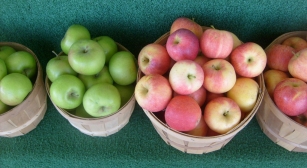
Bones - Do not be afraid to give your dog a raw bone. They will not choke your dog. But Never give a dog cooked meat or cooked bones of any kind. ALL cooked bones can
splinter and hurt a dog, not just chicken bones. Watch your doggie the first few times you give her a treat of a raw bone...she may be so excited she gulps it down and can choke...but after a few times she will take her time to enjoy it.
Quality of meat - When choosing meats, I go for some a quality, fresh meat with some fat.
Vegetables - You can save by usually from the damaged bin at the market, I prefer to feed my doggy organic as I don't want her to be exposed to the same toxins in produce that I avoid. Some great veggies to include are green beans, peas, carrots, kale, squashes, turnips, radishes, apples, berries, beets, zucchini, mustard and collard greens, and cabbage.
Some fruits and veggies should never be fed to dogs. These include onions, broccoli, potatoes, garlic, avocados, mushroom, grapes/raisins, tomatoes, most nuts, fruit that hasn't had leaves,stems, seeds or pits removed, or rhubarb.
Grains - You should also not include any grain in your dog's raw pet diet. Corn, soybeans (not a grain, but a common allergen), rice, oatmeal, barley, and wheat should be avoided. They are not healthy and are not part of a dog's natural diet.
Other great things to add: You might also want to include flax seed (ground, not whole), yogurt, brewer's yeast, pumpkin, eggs, canned or cooked beans, boneless fish, and sardines.
Other Pages You May Like:
Sources:
-Amber S., Yahoo! Contributor Network Dec 3, 2007
- www.dogfoodadvisor.com
Return to Raw Foods Diet page from Raw Pet Diet
Follow
Guide with Over 50 Recipes!
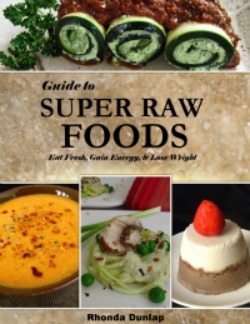
Guide to Super Raw Foods is now available for Kindle or paperback on Amazon
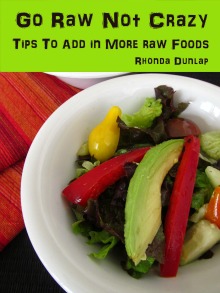
Sign-up for Newsletter and get my Free E-Book Go Raw Not Crazy
Check Out These Sites:

